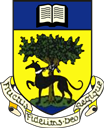Personal Statement
One of the most challenging aspects of the application process
The personal statement has changed - it is important that you find out as much as you can about what is being looked for by university admissions tutors. More information is available here (opens new window)
Format is changing for 2026 entry - so framed around 3 questions, not free text
1. Why do you want to study this course or subject?
- Motivation for choosing this course / Knowledge of subject area
2. How have your qualifications and studies helped you to prepare for this course or subject?
- How are your current and previous studies relevant to your chosen course?
- What transferable/core skills do you have?
3. What else have you done to prepare outside of education, and why are these experiences useful?
- Work experience/volunteering/ employment plus personal experiences/achievements
Despite the changes, the personal statement remains one of the most challenging aspects of the application process. After your academic grades, this is perhaps the most important part of the application process, and it is vital that you take time to do this properly. Most university courses do not have time to interview prospective students so an impressive personal statement could help make the difference between getting a place and not getting a place. This is especially the case where competition for places is high, and applicants have similar grades. Where interviews are held for courses, such as medicine, the personal statement may help the admissions tutors develop their questions.
The personal statement has a total limit of no more than 4000 characters which includes spaces. This equates to 47 lines - roughly a typed A4 page comprising of about five or six paragraphs. Times New Roman 12 point is the default font and font size.
If typing your personal statement in school, do not type it directly into UCAS Apply. The word processing system used for the personal statement box is fairly basic. A better approach is to type up your statement in a more sophisticated one such as Microsoft Word and copy and paste the completed personal statement into the box provided for it on UCAS Apply.
There is no such thing as an ideal personal statement - admissions tutors for different courses will be looking for different things. In general, however, they will be looking for evidence of the following -
What Admissions Tutors are looking for
- The reason the applicant has chosen a particular subject.
- Evidence that the applicant has carefully thought about his or her choice of study.
- The applicant has carefully researched his or her course of study and what it entails.
- The applicant displays a sense of excitement, enthusiasm and curiosity about the subject.
- · The applicant displays a clear focus of where they see themselves going in future.
- The applicant displays a range of transferable skills which will enable them to cope at university.
- How things the applicant has done has set them thinking.
- The applicant shows evidence of independent thinking.
- The applicant conveys something about his/her personality and character.
Writing Style
- Make sure you use positive language throughout the personal statement. An example of how positive language can make a difference can be seen in this article, Say the Magic Words(article (opens new window)), published in The Guardian in October 2005.
- Try not to make your sentences too long. It will be easier for admissions tutors to read short sentences rather than long rambling ones.
- Don't use big words you wouldn't normally use to try to impress - you might not fully understand their meaning.
- Admissions tutors set great store on paragraphing and punctuation.
Getting started
- The first line is the hardest to write
- Start in the middle
- What have you done? Make a list!
- Not everything has to be directly related
- Start to write more about each item
- What did you actually do?
- What did you gain from it?
- What did you achieve eg. an award?
- How does it relate to your application?
Writing style
- May not be a style you are used to
- Be concise
- Cut words as you redraft
- Natural language, not complex
- Positive tone
- Focus on you, "I did" not "we did"
- Try not to repeat words too often
- Avoid using lists
- Standing out isn't always positive
Key facts
- Can be the reason you get an offer
- One statement for up to five choices
- Do your research first
- Focussed language
- Avoid lists
- Try to relate achievements and experiences back to your application
- Make sure it reads well
- Draft and redraft
- Use the support your school offers
- Write the first line last
Chatgpt - why not?
When you complete your application, you have to declare that your personal statement hasn't been copied or provided from another source, including artificial intelligence software. It is called a personal statement; it needs to be personal to you. PLEASE READ (opens new window)
Warning!
Your personal statement must be unique and personal to you. Do not be tempted to copy sections from examples of personal statements you might find elsewhere such as the internet. UCAS operates a Similarity Detection Service(opens new window) which scans every personal statement submitted against a library of every statement previously submitted, sample statements from websites and other printed sources. Their sophisticated Copycatch system ignores a selection of commonly used words and phrases but will pick up on significant similarities between statements.
Statements showing a level of similarity of 10% or more are reviewed by members of the UCAS Similarity Detection Service Team and if plagiarism is suspected, admissions tutors at the relevant universities will be informed.




